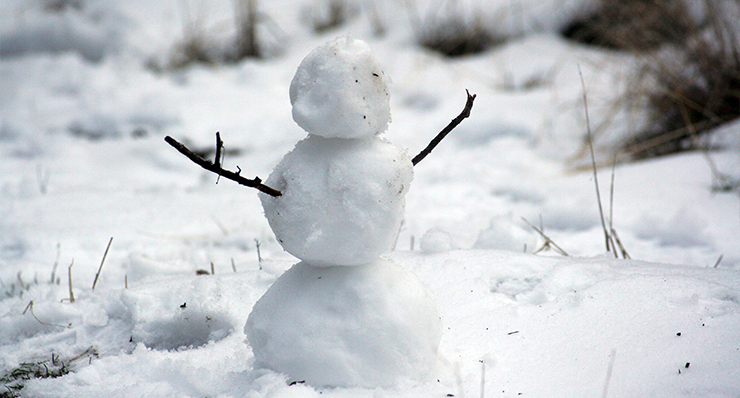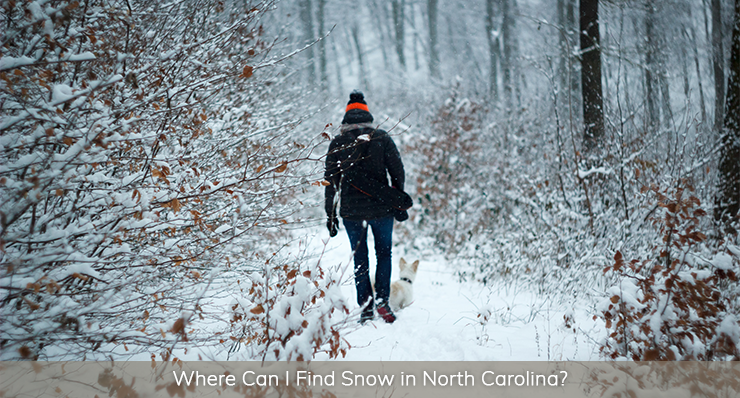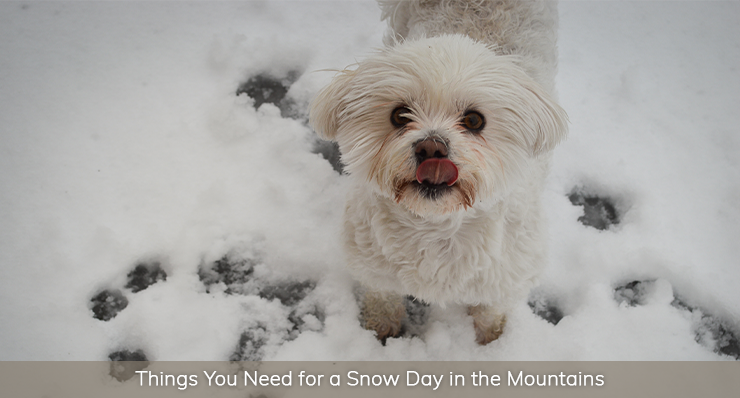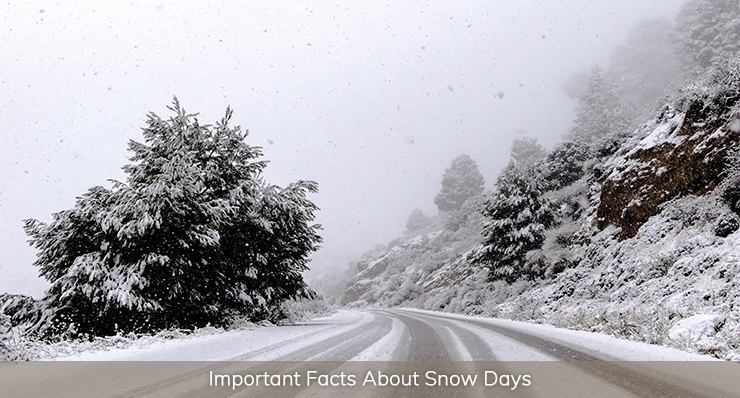
We have said it for years, and the secret is getting out: winter is one of the best times to be in the mountains, which is why it’s good to know how to prepare for snow in the Western North Carolina mountains. Although the weather is a little chillier, averaging 50 degrees throughout the winter, the colder months in the mountains offer fewer crowds, less traffic, and many days are still nice enough to enjoy hiking. If you are lucky enough to be in the mountains in the winter, you will be able to get up close and personal with snow! Many of our new residents and southern transplants come from the lower south, like Florida, and may not be familiar with snow protocol. If this is you, don’t let the lack of familiarity with snow keep you from experiencing it to the fullest when you are living here. It can be fun if you know how to prepare for snow in the Western North Carolina mountains!
Where Can I Find Snow in North Carolina?

If you are looking to live in a snowy place, your best bet is to look at coming to the towns with a higher elevation. The higher the elevation, the more likely a town is to get snow, and get a lot more of it! The town with the highest elevation on the plateau is Highlands with an elevation of 4,118 feet. Highlands, North Carolina sees an average of almost 13 inches of snow a year. The months you are most likely to see snow, in Highlands or anywhere else in the North Carolina mountains, are January and February, with an occasional fluke snowstorm in early March. December occasionally brings snow, but most of the time, Christmases in the mountains aren’t white.
Things You Need for a Snow Day in the Mountains

Here are a few items that you’ll want to make sure you have access to when you are preparing for snow in the Western North Carolina mountains:
Waterproof boots- They don’t have to be a crazy expensive pair of hiking boots. But we do recommend that you have a pair of shoes that cover your ankles and that they are water resistant. Making sure you have waterproof boots will ensure that you can comfortably get around in the snow and ice, whether you are playing with your family or just simply trying to get from point A to point B.
Waterproof jacket- Honestly, the more waterproof clothing you have, the better. Of course, if it’s pouring snow from the sky, you’ll want a jacket so it doesn’t land on you, melt and get you all wet. Snow only stays pretty and fluffy for so long, so even if it isn’t actively snowing, it will likely be falling as it melts from trees and rooftops. Don’t be caught standing outside without a jacket and let some snow fall on your head or dry clothes!
Gloves- Even if you don’t plan on making snowballs, gloves are really useful to have in the snow. Of course, because it’s cold and your hands will be more comfortable, but if you need to quickly wipe off some snow from car door handles, gloves are useful to make sure your hands don’t get wet and cold.
A toboggan/beanie- If you plan on being out in the snow, especially if it’s a windy day, you’ll want to make sure your ears are covered. When your ears experience the cold for too long, you can get a headache, which could easily ruin your fun time in the snow. Make sure you don’t run into this problem.
Flashlights and candles- These are more of a safeguard against power outages, on the off chance there is one. Of course, you can live through a power outage without these items, but it’s nice to have them when you need them.
Non-refrigerated food items- Again, a power outage during snow isn’t very common here, but these items are great to have around if you are expecting any amount of snow. Better safe than sorry is the best motto when it comes to winter weather!
A snow shovel- You may need to shovel snow out of your driveway or even just create a walkway for yourself. Don’t get caught without this tool or you may find yourself in a bind!
Important Facts About Snow Days

If you aren’t yet familiar with snow days, there are a few things you may not be aware of or think about when you are in a mountain town that gets snow.
1. Be aware of the roads you are traveling/have to travel on. Before traveling in the snow or while it’s snowing, think about the main roads, back roads, and even the driveway of your home. Keep in mind that main roads are often maintained better than back roads and side roads. Just because a highway might be clear, doesn’t mean the side roads you also have to travel on are safe. Curvy mountain roads are a lot harder to drive than the standard highway that most people are used to.
Also pay attention to the driveway of your house. Is it flat, or steep? Do you need a four-wheel drive vehicle to get up or down the driveway in the event of snow? On days when it isn’t snowing, is the driveway shaded? If so, snow will take more time to melt. These are important questions to ask yourself if you are expecting snow, or trying to plan travel and figure out how to prepare for snow in the Western North Carolina mountains.
If you want up-to-date information on road conditions, follow Glenville-Cashiers Rescue Squad on Facebook. They are known to post road conditions and whether it’s safe to drive. You can also call 511 for information on road closures in Jackson County, if you live in Cashiers or Lake Glenville. If either of these entities deem the roads unsafe, do not risk driving even if you have a four-wheel drive vehicle. And even then, if they say roads are clear, you should always exercise caution when driving in the mountains.
2. Just because it has stopped snowing, that doesn’t mean the roads are necessarily safe. One of the biggest concerns when it comes to winter weather is ice. More often than not, roads can be more dangerous the next morning after a snow. As the snow melts during the day and turns to water, it has the potential to freeze on the roads as the temperature drops overnight, making roads icy the following morning. Black ice on the roads is dangerous, because often it looks like a puddle. The best way to stay informed about road conditions is to check the Glenville-Cashiers Facebook page and 511 to determine if roads are safe, rather than venture out on your own and find out. Always be cautious regardless.
3. Call ahead before going to stores or restaurants during or after it snows. Even if you deem it safe to leave your own residence during or after a snow storm, remember that other people may still be stuck at home due to icy driveways or the unkempt backroads they live near, so your favorite restaurants might not be open yet. Also, they may be experiencing a power outage and might be unable to open. Rather than make the trip out to be disappointed by a closed sign, it’s always a good idea to call ahead to wherever you’re going to make sure they are up and running.
Landmark Realty Group Can Give You Snow Tips
Our whole team has lived in the mountains for long enough to be able to give you snow advice that goes beyond this blog post. We want you to feel confident that you know how to prepare for snow in the Western North Carolina mountains. If you have any questions about how to handle the snow, we are here to help make your mountain winters the best they can be. Don’t let weather intimidate you. Get the full mountain experience by playing in the snow or staying cozy by the fire, enjoying the gorgeous wintry views from the huge windows in your home. We can’t wait for you to experience North Carolina mountain winters like we are lucky enough to every year.
Posted by Landmark Concierge on
Leave A Comment